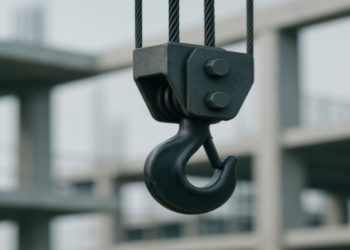Navigating the complexities of commercial property ownership requires a solid foundation in understanding your risks and how to mitigate them. Commercial landlord insurance stands as your first line of defence against a range of potential financial losses. From property damage due to unforeseen disasters to legal liabilities arising from tenant activities, this specialised insurance coverage is tailored to protect your investment and secure your revenue stream.
Knowing what your policy covers is crucial in preparing for the unexpected. This coverage not only safeguards your property but also offers you the confidence to manage your real estate assets effectively, ensuring they continue to generate income even in the face of challenges.
What Every Commercial Landlord Needs to Know
When it comes to protecting your commercial property, not all insurance policies are created equal. It’s essential to thoroughly evaluate your coverage to ensure it meets the specific needs of your property and business operations. Key aspects such as property damage, liability, and loss of income should be covered comprehensively. This evaluation will help you identify any gaps in your policy that could leave you exposed to unforeseen risks.
One effective way to mitigate such risks is through commercial landlord insurance. This specialised insurance provides a safety net, covering various scenarios that might not be included in standard property insurance policies. Are you ready to fortify your commercial property against the unexpected? Securing the right insurance coverage is your first step towards peace of mind and financial security. Don’t leave your investment to chance—explore your options today to ensure you’re fully protected. Join the ranks of savvy commercial landlords who understand the value of comprehensive coverage.
The Impact of Location on Your Commercial Property
The location of your commercial property significantly influences its exposure to various risks and, consequently, your insurance needs. Properties located in areas prone to natural disasters such as floods, earthquakes, or hurricanes require specialised coverage that addresses these specific risks. Understanding the geographic and environmental factors unique to your property’s location will help you select insurance that provides adequate protection.
Location also affects the likelihood of vandalism, theft, and other security-related incidents. Commercial properties in high-crime areas might see higher insurance premiums, but investing in comprehensive coverage ensures that you’re prepared for these challenges. Enhancing security measures can mitigate these risks and potentially lower insurance costs. It’s crucial to balance the initial investment in security with the long-term savings in insurance premiums, ensuring your property remains a lucrative investment.
Risk Management Strategies for Commercial Properties
Managing risks in commercial property ownership involves more than just insurance; it requires a comprehensive strategy that addresses all potential vulnerabilities. Regular property assessments are crucial for identifying risks related to structural integrity, fire safety, and security systems. These assessments can reveal critical areas for improvement, reducing the likelihood of accidents or damage that could lead to substantial financial losses.
In addition to physical risk assessments, consider implementing strict tenant screening processes. Ensuring that your tenants are reliable and have a good track record reduces the risk of lease violations and property damage. If you do find yourself having any issues with a tenant, then reaching out to Dallas commercial landlord lawyers or ones in your area can help you resolve the dispute efficiently and legally. Combining these preventive measures with robust insurance coverage creates a multi-layered defence against the myriad challenges commercial landlords face, safeguarding both your property and your financial well-being.
Maintenance and Repairs to Keep Your Property in Top Condition
Regular maintenance and timely repairs are essential for preserving the value of your commercial property and ensuring the safety and satisfaction of your tenants. A well-maintained property attracts and retains tenants more effectively and reduces the likelihood of costly emergency repairs and liability claims. Setting up a routine maintenance schedule can help identify potential issues before they escalate, saving you time and money in the long run. This function can be taken care of with the help of professionals in Property Management in Hull, or elsewhere. It can ensure preventative maintenance to keep your property in top condition.
Insurance providers often consider the condition of the property when determining premiums. Properties that are well-maintained and regularly inspected may qualify for lower insurance rates. Investing in your property’s upkeep is a proactive strategy that enhances its value and contributes to a reduction in overall operating costs. Keeping your property in top condition is a win-win for both you and your tenants, fostering a positive and profitable leasing environment.
Legal Requirements and Compliance
Staying compliant with legal requirements is a fundamental aspect of commercial property management. Laws and regulations governing safety, accessibility, and environmental standards are critical for legal compliance and play a significant role in protecting your investment. Regular updates to your property to meet these standards can prevent costly lawsuits and fines, as well as enhance the value of your property.
Compliance with legal standards reinforces the trust between landlords and tenants, establishing a more stable and attractive leasing environment. Insurance plays a supportive role in this context by covering legal expenses and settlements in the event of litigation.
The right insurance is not just protection—it’s a cornerstone of your commercial property’s success. If you haven’t reviewed your insurance policy recently, now is the time. Ensure your investment is safeguarded against all eventualities and set your property on the path to thriving, regardless of what the future holds. Act now to protect your property, your tenants, and your business.













































































